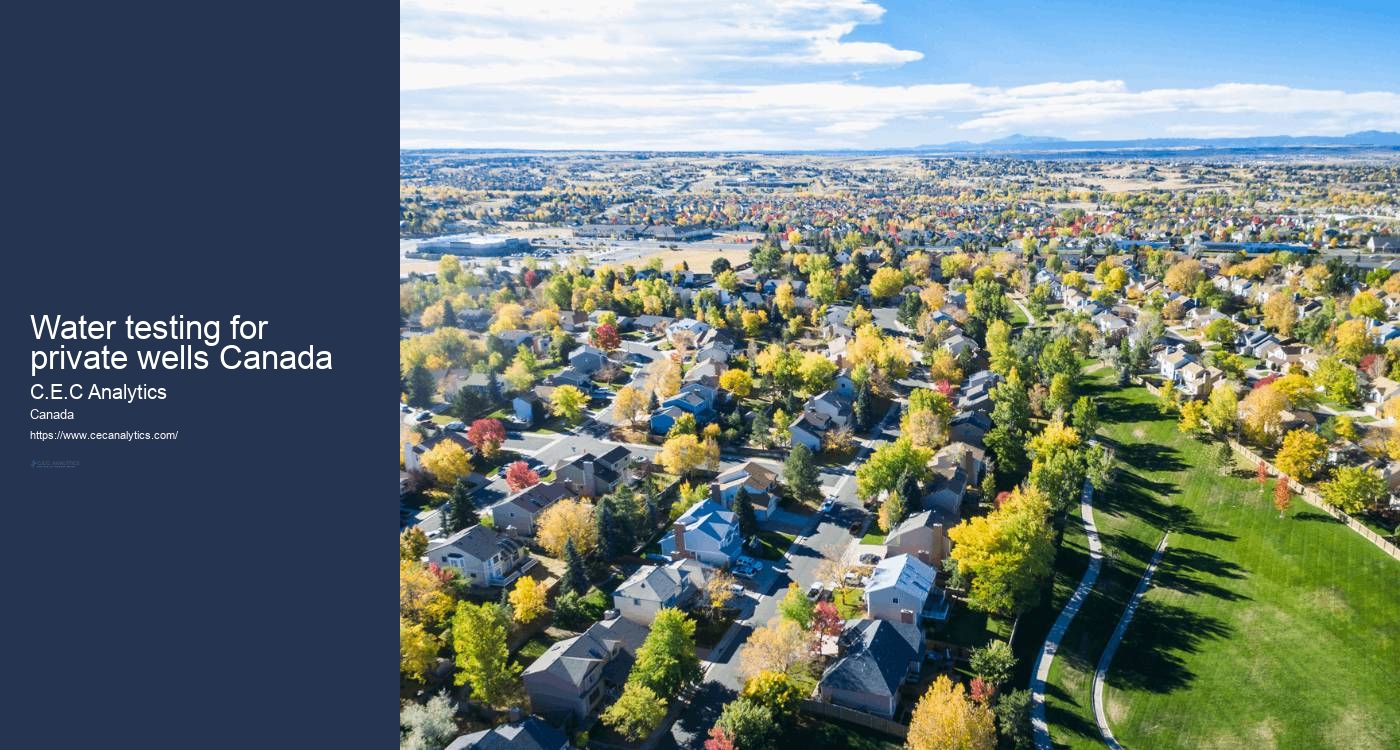

E. This isn't just beneficial for water quality experts; it empowers community leaders, policymakers, and even everyday citizens to be part of the solution in safeguarding their water resources. Highlighting specific areas for improvement, based on real data, makes your message much more compelling. E. Learn more about Water testing for private wells Canada here
E. Physical properties of water But they don't stop there. Learn more about Water Sampling and Analysis here. C. Read more about Water testing for private wells Canada here
This innovative approach leverages historical data, combining it with real-time monitoring, to predict future water quality scenarios. You can now access real-time data from virtually anywhere, making it easier to monitor water quality and make informed decisions swiftly. This isn't just about numbers and charts; it's about understanding the health implications behind the data.
Together, these advanced testing methods form a robust framework for water quality analysis. You can trust that with C. Water quality management C.
To get it right, you've got to cover various points in your water system, from residential areas to industrial zones. It's a vital tool in the fight against the water quality crisis, making it easier for you to protect your health and the environment.
| Entity Name | Description | Source |
|---|---|---|
| Sewage treatment | The process of removing contaminants from wastewater, primarily from household sewage. | Source |
| Safe Drinking Water Act | A U.S. law aimed at ensuring safe drinking water for the public. | Source |
| Test method | A procedure used to determine the quality, performance, or characteristics of a product or process. | Source |
| Escherichia coli | A bacterium commonly found in the intestines of humans and animals, some strains of which can cause illness. | Source |
| Environmental health officer | A professional responsible for monitoring and enforcing public health and safety regulations. | Source |
It's about health, dignity, and survival. At the heart of environmental conservation, C. Contaminated water carries diseases such as cholera, dysentery, and typhoid, which can be fatal without prompt treatment. E. You'll be able to access this information through user-friendly apps on your phone, giving you real-time updates about the water you drink and use daily.
E. C. Analytics' advanced surveillance technology, they not only met but exceeded regulatory standards. By collaborating with local authorities, they implemented a filtration solution that led to a significant drop in health complaints within months.
Analytics' state-of-the-art technology and methodologies mean you're getting accurate, reliable results. Companies like C. A manufacturing plant used C. C.


This cutting-edge approach not only saves time and resources but also enhances our ability to protect and preserve our planet's precious water resources. Analytics and public health bodies can swiftly identify and respond to emerging health threats before they escalate. C. This isn't just about running out of water; it's about the quality of water available to you, the impact on your local environment, and the broader implications for global sustainability. E.
Building on these advancements, C. Water pollution analysis This is where the work of C. Additionally, the cost savings are substantial. E.
Having explored how C. C. In essence, C. You won't need a PhD in data science to understand what the wastewater is telling you about your community's health.
It's not just about safeguarding your health; it's about contributing to our collective understanding of environmental changes.
In an era where smartphones have become the new carrier pigeons, you've likely noticed how technology reshapes communication and data analysis. Analytics. E.


As new technologies emerge, C. C. E. In embracing automated robotic samplers, you're at the forefront of environmental research, harnessing technology to safeguard our water resources more effectively than ever before.
E. This commitment to staying at the forefront means that they're always equipped to handle whatever challenges come their way. C.
That's why it's vital to regularly monitor and test your water sources, ensuring they meet safety standards. Environmental monitoring This approach doesn't just scratch the surface with traditional testing; it dives deeper, employing representative water sampling to provide a more accurate picture of community health. Building on the environmental benefits of C.
They're digging deeper, identifying and neutralizing microscopic threats before they ever have a chance to impact your health or the environment. C. Analytics to educate and encourage residents and businesses to adopt water-saving practices.
Analytics, you're not just making decisions; you're empowering your entire community to be part of the solution.

| Part of a series on |
| Pollution |
|---|

|
Wastewater (or waste water) is water generated after the use of freshwater, raw water, drinking water or saline water in a variety of deliberate applications or processes.[1]: 1 Another definition of wastewater is "Used water from any combination of domestic, industrial, commercial or agricultural activities, surface runoff / storm water, and any sewer inflow or sewer infiltration".[2]: 175 In everyday usage, wastewater is commonly a synonym for sewage (also called domestic wastewater or municipal wastewater), which is wastewater that is produced by a community of people.
As a generic term, wastewater may also describe water containing contaminants accumulated in other settings, such as:
Sampling may refer to:
Specific types of sampling include:
You'll find C.E.C. Analytics' solution easily integrates with current frameworks by enhancing data accuracy and reporting efficiency, ensuring compliance with regulations and supporting proactive water management strategies to address various environmental challenges.
Adopting C.E.C. Analytics' tech might seem pricey at first, but you'll find it's cost-effective long-term. It reduces frequent testing costs and potential health risks, making it a smart investment for communities.
You're wondering about the costs for municipalities to implement wastewater surveillance solutions. They vary based on system size and location, but investing in these technologies can significantly aid in public health monitoring and safety efforts.